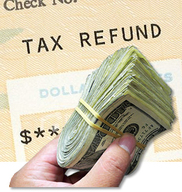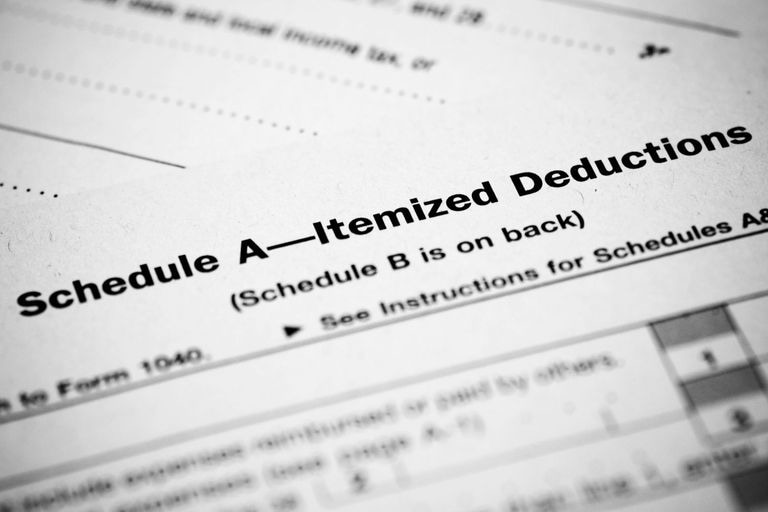AuthorSkip Lovette, CPA Archives
March 2021
Categories |
Back to Blog
With filing season opening on February 12, the Internal Revenue Service urged taxpayers to take some simple steps to help ensure they file accurate tax returns and speed their tax refunds to avoid a variety of pandemic-related issues.
Although every year the IRS encourages taxpayers to e-file their returns and use direct deposit to receive refunds, to those taxpayers who have previously not used e-file, the IRS emphasizes using it this year to avoid paper-related processing delays. Taxpayers can file electronically by using a tax professional, IRS Free File or other commercial tax preparation software. The IRS cautioned paper-filed tax returns and paper checks will take even longer this year due to a variety of reasons. Taxpayers have until Thursday, April 15, 2021, to file their 2020 tax return and pay any tax owed. The IRS expects to receive more than 160 million individual tax returns this year with nine out of 10 returns filed electronically. At least eight out of 10 taxpayers get their refunds by using direct deposit. Here is an in-depth perspective on how the IRS is preparing for a successful filing season. Be tax ready: Review pandemic-related changes Last year's sweeping set of tax changes not only affected individuals and their families but may also affect the tax return they're filing this year. A new IRS fact sheet explains what taxpayers need to know to file a complete and accurate tax return. The IRS recognizes that filing this year may be challenging for some taxpayers and it's important to understand how to claim credits and deductions, get a refund timely and meet all tax responsibilities. Recovery Rebate Credit helps people still eligible for Economic Impact Payments For those who may be eligible for stimulus payments, they should carefully review the guidelines for the Recovery Rebate Credit. Most people received Economic Impact Payments automatically, and anyone who received the maximum amount does not need to include any information about their payments when they file. However, those who didn't receive a payment or only received a partial payment may be eligible to claim the Recovery Rebate Credit when they file their 2020 tax return. Tax preparation software, including IRS Free File, will help taxpayers figure the amount. New language preferences to help taxpayers Additionally, this year for the first time, Forms 1040 and 1040-SR are available in Spanish, and the IRS has a new form allowing taxpayers to request that they receive information from the IRS in their preferred language. The Schedule LEP, Request for Change in Language Preference, will allow taxpayers to request information in some 20 different languages besides English. The IRS also wants to remind taxpayers of other important changes that could impact their tax return this year. Remember to factor in retirement plan distributions Some taxpayers found it necessary to take coronavirus-related early distributions from 401(k) plans and traditional IRAs in 2020. Under the CARES Act, those distributions – up to $100,000 – are not subject to the 10% additional tax that otherwise generally applies to distributions made before an individual reaches age 59 ½. In addition, a coronavirus-related distribution can be included in income in equal installments over a three-year period, and an individual has three years to repay a coronavirus-related distribution to a plan or IRA and undo the tax consequences of the distribution. Taxpayers should also remember that they can make contributions to traditional IRAs until April 15, 2021, and still deduct that amount on their 2020 tax return, if eligible. New for 2020: non-itemizers can deduct $300 for charitable cash contributions Previously, charitable contributions could only be deducted if taxpayers itemized their deductions. However, with the CARES act, taxpayers who don't itemize deductions may take a charitable deduction of up to $300 for cash contributions made in 2020 to qualifying organizations. For the purposes of this deduction, qualifying organizations are those that are religious, charitable, educational, scientific or literary in purpose. Now more than ever, e-file is best Now more than ever, the safest and best way to file a complete and accurate tax return and get a refund is to file electronically and use direct deposit. Taxpayers can visit IRS.gov/filing for more details about IRS Free File, Free File Fillable Forms and Free tax preparation sites. E-filing is also available through a trusted tax professional. Free File is a great option for people who are only filing a tax return to claim the Recovery Rebate Credit, either because they didn't receive an Economic Impact Payment or did not receive the full amount. The fastest way to get a refund is to file electronically and use direct deposit. Most refunds are issued in less than 21 days, but some refunds may take longer for a variety of reasons. Taxpayers can track their refund using Where's My Refund? Lovette, CPA, PA, is a full-service tax and accounting firm serving customers for more than 13 years. We serve the Triad, the Triangle, and the Sandhills. For more information, call us at 336.346.1960, visit our website, www.lovettecpa.com, or e-mail [email protected].
0 Comments
Read More
Back to Blog
Lovette CPA Celebrates 10 years2/5/2019 A lot can happen in 10 years. Since 2009, Lovette CPA, P.A., has served a wide range of clients in various industries throughout the Triad and Raleigh.
Over the past decade, Lovette CPA has served local corporations and individuals with tax and financial solutions. The firm provides hands-on service, prompt attention and tangible results. Centrally located in Greensboro, NC, the firm services clients from Raleigh to Winston-Salem and beyond. We recognize that our client's satisfaction is directly tied to our success. When you use us for your accounting and financial needs. Our firm is a true business resource, offering a wide range of services to individuals, families and businesses of all sizes. “One of the reasons clients appreciate us is the range we offer,” said Skip Lovette, Owner of Lovette CPA. “We are capable of handling the books and tax returns, but also have a deep knowledge of the business side, which can really help.” We have offices in Greensboro and Raleigh. For more information, call us at 336.346.1960, visit our website, www.lovettecpa.com, or e-mail [email protected].
Back to Blog
Tax credits and tax deductions can be the most satisfying part of preparing your tax return. Both of these reduce your tax bill, but there are significant differences.
Tax credits directly reduce the amount of tax you owe, giving you a dollar-for-dollar reduction of your tax liability. A tax credit valued at $1,000, for instance, lowers your tax bill by the corresponding $1,000. Tax deductions, on the other hand, reduce how much of your income is subject to taxes. Deductions lower your taxable income by the percentage of your highest federal income tax bracket. So if you fall into the 25% tax bracket, a $1,000 deduction saves you $250. Important notes about tax credits Some tax credits are intended to help cover individual costs around adopting a child, child care expenses or caring for an elderly parent. But these are nonrefundable tax credits. If you don’t owe a lot in taxes to begin with, you don’t get the full value if the credits take your tax bill below zero. In other words, a $600 tax bill combined with a $1,000 credit doesn’t get you a $400 tax refund check. Other credits are refundable. If you qualify to take refundable tax credits — things like the Earned Income Tax Credit, the Premium Tax Credit, the Child Tax Credit and the Additional Child Tax Credit — the value of the credit goes beyond your tax liability and can result in a refund check. The IRS lays out specific criteria you must meet to qualify for both nonrefundable and refundable credits. As you run the tax credit calculations in your return, keep in mind that you must determine your tax liability before you apply any credits. The credits don’t reduce your taxable income -- but tax deductions do. Tax deductions considerations There are two types of tax deductions. The standard deduction is a one-size-fits-all reduction in the amount of your income that’s subject to tax. You don’t have to do anything to qualify for the standard deduction or provide any documentation. You can claim the standard deduction on whichever form you file: Form 1040, 1040A or 1040EZ. The amount varies depending on your filing status. The standard deduction in 2016 for single filers and married couples filing separately is $6,300; it’s $12,600 for married couples filing jointly. For those filing as heads of household, the standard deduction is $9,300. In 2017, the standard deduction for single filers and married couples filing separately is $6,350; it’s $12,700 for married couples filing jointly. For those filing as heads of household, the standard deduction in 2017 is $9,350. But you may be better off opting to use the second type of deduction, the itemized deduction, instead. Itemizing allows you to total the amount you spent on allowable deductions such as home mortgage interest, medical expenses or charitable donations. If together they exceed the value of the standard deduction, you’ll want to itemize. You’ll need to use the regular 1040 filing form and Schedule A. Taking the standard deduction or itemized deductions is an either/or situation. You can claim one kind or the other, but not both. And, just as with tax credits, taking certain deductions requires meeting certain qualifications based on your filing status, current life events and the amount of your income that’s taxable. Be sure you meet IRS criteria to qualify for both tax credits and deductions With more than 20 years of experience, Lovette CPA, P.A., is a true business resource, offering a wide range of services to individuals, families and businesses of all sizes. We have locations in Greensboro and Raleigh. For more information, call us at 336.346.1960, visit our website, www.lovettecpa.com, or e-mail [email protected].
Back to Blog
At Lovette CPA, we are highly skilled and experienced with tax regulations and preparation for filing your return. However, we encourage you to be responsible for providing the right documents to ensure our tax returns are done properly and yield the highest return. Here’s some basic tips for keeping track of the right documents:
Track paperless records Paperless banking may have turned shoeboxes into receipt relics of the past, while your online statements often contain key backup records for potential deductions such as:
Many of us ignore the line items from these statements until we start our annual tax-filing ritual. But you may save time by taking a few extra minutes each month to jot down tax-related information including:
Create a spreadsheet dedicated to tax records. Throughout the year, consider downloading and printing online documents that will be available for only a limited time. Think deductions throughout the year Keep a mileage log in your car. Jot down the miles when you use your vehicle for volunteering, work, business or medical appointments as well as parking, bus and taxi fares and tolls can help you qualify for a deduction. Hold on to cash receipts that document your transportation, charitable work, job-search and other tax-deductible activities. Hold on to any paperwork and documents that arrive in the mail, or receipts needed to prepare the return, even if you're not sure. It's always better to have too much information than not enough. Life events you experience Documents related to life events such as marriage, death of a spouse or divorce, alimony payment records, adoption papers and child custody agreements should all be saved. A newborn brings joy into your life and potential tax advantages. When you sit down to prepare your return, have these documents for dependent children close at hand:
Buying a home presents tax-saving opportunities. New homeowners should keep paperwork such as:
It's good to keep your closing documents in case you paid real estate taxes or points when you closed that don't appear on your year-end mortgage interest statement. Home improvements such as wheelchair ramps recommended by a doctor may be deductible as medical expenses if you itemize deductions. Certain energy efficiency improvements also may help you reduce your tax liability. Remember, when you use TurboTax to prepare your taxes, we'll ask you simple questions to ensure you don't overlook any possible deductions. Keep your filing history The value of a tax return doesn't end on April 15. You'll need to provide this document to get a mortgage, apply for student loans and to check the status of your refund on the Internal Revenue Service's "Where's My Refund?" web page. Generally, the IRS can audit you for three years after a filing date, and in some cases even longer, so guard your return copies and support documents just in case. The IRS can audit you as many years back as they would like if it suspects fraud, so keeping tax returns and supporting documents for at least seven to 10 years puts you on the safe side. With more than 20 years of experience, Lovette CPA, P.A., is a true business resource, offering a wide range of services to individuals, families and businesses of all sizes. We have locations in Greensboro and Raleigh. For more information, call us at 336.346.1960, visit our website, www.lovettecpa.com, or e-mail [email protected].
Back to Blog
Beware: student loans can have unforeseen, long-lasting implications for a family's financial future. At Lovette CPA we can help you navigate through the confusion to make a decision that makes the most sense to you and your family. The following will offer a description student loans that we hope you’ll find helpful.
There are two types of student loans.
PLAN FOR FINANCING COLLEGE WITH STUDENT LOANS There are many things to consider when financing college with student loans:
If you’re struggling to make their monthly student loan payments, they may want to consider income-driven repayment (IDR) plans. These plans are available through the U.S. Department of Education's Office of Student Aid for any borrower with eligible federal student loans. All Direct and FFEL student loans are eligible. Parent PLUS and Perkins loans are eligible if consolidated. IDR plans help borrowers avoid delinquency and default when their monthly debt payment consumes a high proportion of their monthly income. IDR plans do have a downside: Paying back the loan over a longer period means the borrower will pay more interest. All IDR plans have the following aspects in common:
With more than 20 years of experience, Lovette CPA, P.A., is a true business resource, offering a wide range of services to individuals, families and businesses of all sizes. We have locations in Greensboro and Raleigh. For more information, call us at 336.346.1960, visit our website, www.lovettecpa.com, or e-mail [email protected].
Back to Blog
Lovette CPA's 5 Tax Tips for 20171/14/2017 It's important to consider the strong benefits of preparing for the tax season early. Some simple organization for your taxes can save you time, money and frustration this tax season. Here are a few tips to consider as we enter tax season:
1. Organize your 2016 expense sheet and prepare to keep good records for 2017. Whether you keep track of your payments through a ledger, a notebook or accounting software, prepare 2016's expenses sooner rather than later and use a clean sheet for 2017. Remember that any deductibles from December should be recorded before they are misplaced. Lovette CPA suggests you record expenses, rather than rely on bank statements. This is particularly important for expenses late in the calendar year. 2. Consider an earlier refund. You can receive a refund faster by filing your taxes early. Last year, around 111 million out of 152 million returns resulted in refunds for the 2015 tax year. The average refund for the 2015 tax year was $2,857. If you are waiting for your refund, you can track it with the IRS website "Where's My Refund?" 3. File on time to save money. Filing your taxes on time can save you money. The IRS penalizes individual late filers and calculates penalties and interest on a case-by-case basis. There is no penalty for filing late if you are getting a refund although, if you do not claim your tax returns within three years, the money is forfeited to the U.S. Treasury. Filing extensions and paying any owed taxes will not be penalized either. A late filing penalty applies if you owe taxes and did not file a return. Late payment penalties are 0.5 percent of what you owe in taxes. For every month you don't pay the tax, the percentage you owe increases. 4. Start early to reduce or eliminate errors. Perhaps you noticed a trail of errors the last time you filed your taxes in a rush. Those can be avoided or corrected easily by filing early. There are common errors in many people's previous tax returns. They include incorrect Social Security numbers, incorrect filing status and failure to claim credits or deductions. Filing early gives you time to review your form and edit any mistakes before the filing deadline. 5. Misc. If you're self-employed If you are self-employed, paying taxes is different, as you will need to send quarterly estimated tax payments. If this is your first time being a self-employed taxpayer, seek help from the professionals at Lovette CPA. We will help you figure out how much to pay and what to deduct without being penalized. With more than 20 years of experience, Lovette CPA, P.A., is a true business resource, offering a wide range of services to individuals, families and businesses of all sizes. We have locations in Greensboro and Raleigh. For more information, call us at 336.346.1960, visit our website, www.lovettecpa.com, or e-mail [email protected].
Back to Blog
Protect Yourself from Tax Scams3/8/2016 In today’s environment, it’s a busy time for cyber criminals and scammers. Tax-refund fraud is a serious and fast-growing problem.
Tax-refund fraud happens when a cyber criminal steals someone’s personal information to file a fake tax return and to claim that individual’s the refund. To file a tax return online, they only need a name, date of birth, and a Social Security Number. Cyber criminals are constantly searching for Social Security Numbers and other personal information that they can leverage for fraudulent purposes. Because identify theft and tax-refund fraud often starts long before tax season, it’s important to protect your personal and financial information year round. Here are some tips to protect yourself and your loved ones from tax-refund fraud:
Back to Blog
Advice for a Bigger Refund This Year1/25/2016  If you want to get the biggest tax refund possible this year, you might want to take some tips from the experts at Lovette CPA, PA. Every year, millions of Americans are leaving money on the table because they don't know all of the tax credits they're eligible for. One of the biggest tax credits missed by families is the earned income credit. One in four families aren't taking advantage of it and are leaving as much as $6,200 on the table. Another big one is the saver's credit. If you've opened up an IRA or 401k in the last year, you're eligible for up to $1,000 back on your return. Two of the most important things to making sure you get the biggest refund possible is to start early and have your documents in order. That will help make the whole process go a lot smoother when you file. For more information, call us at 336.346.1960 or e-mail [email protected]
Back to Blog
Medical Flex Spending Accounts: Worth It?12/28/2015
Many employers haven't added a flexible spending account option to their benefits package because they assume that doing so is complex and expensive. But a flexible spending account can be a great addition to your benefits packages and easier to do than you might think.
The most common type of flexible spending account is a medical expense flexible spending account. These FSAs are essentially accounts that your employees can contribute a portion of their paycheck to. The money placed in the flexible spending account is tax free, and it can be used to pay for any number of health related expenses. Those with insurance copays can use their flexible spending account to pay them and in most cases any type of health related product or service will qualify to be paid for from a flexible spending account. This includes everything from cough syrup to first aid kits, and makes a strong case for the tax free benefits that a flexible spending account offers. Those with other needs could find a flexible spending account that suits their needs as well. There are flexible spending accounts designed for those trying to adopt a child, for example, or for those who need to offset the costs of paying for the care of their dependents. The specifics of flexible spending accounts will vary greatly depending upon the exact nature of the account and its provider, but most of your employees will be able to benefit from the addition of a flexible spending account. While the benefits are great, the surprising thing about a flexible spending account is that it's relatively inexpensive for employers and simple to implement and manage. The costs are often lower than most employers realize and since it is the employees paying the funds into the flexible spending account instead of the employer making contributions, so affordability is usually a small matter. For more information, call us at 336.346.1960 or e-mail [email protected] |
 RSS Feed
RSS Feed








